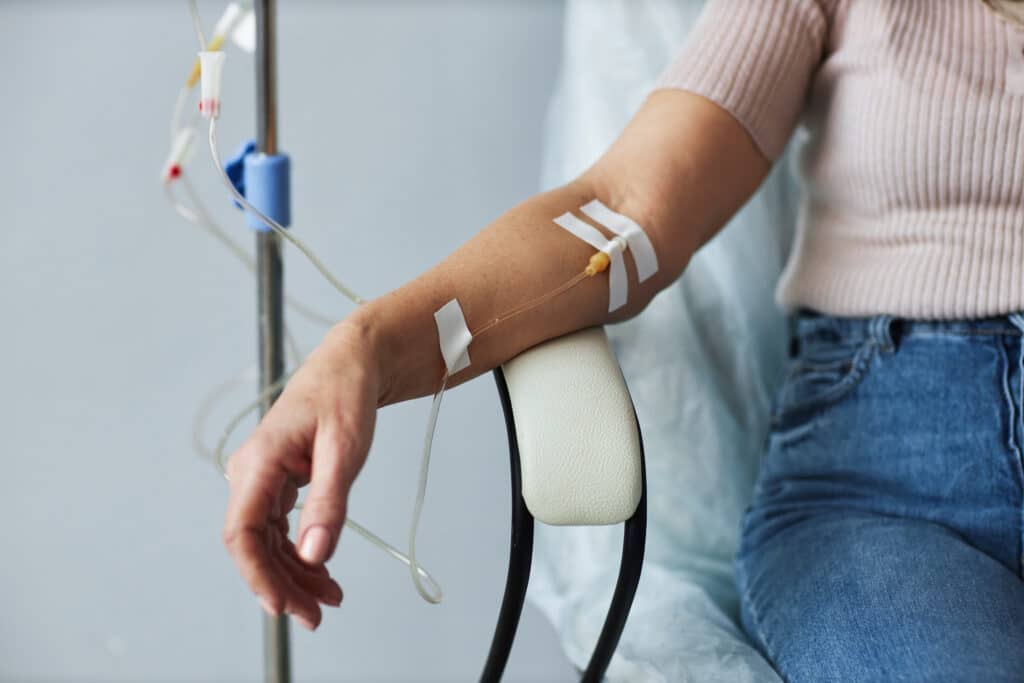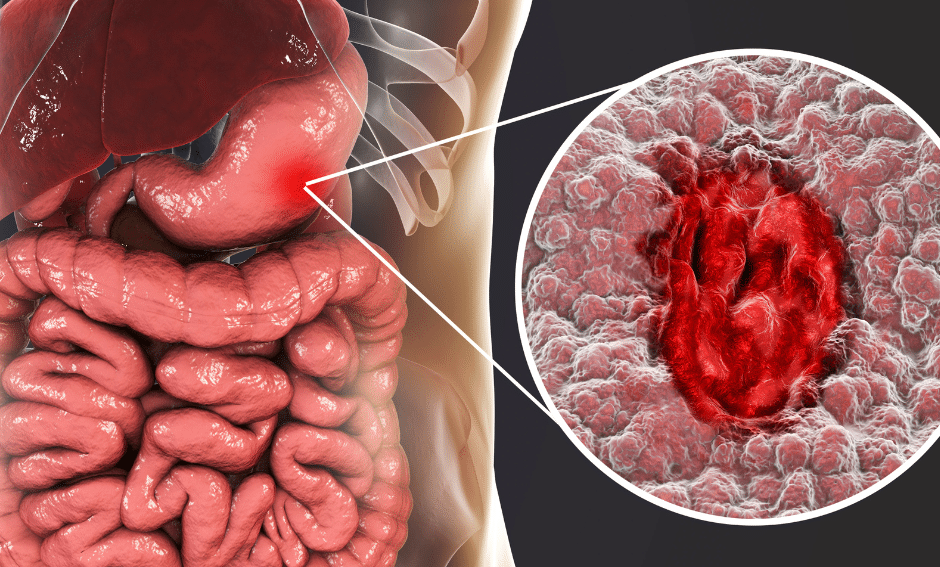5 Reasons to Seek Medical Treatment for Hemorrhoids
Hemorrhoids can affect your everyday life and make tasks like sitting, moving, or going to the bathroom especially difficult or painful. They may become inflamed and cause pain, itching, or bleeding. Though uncomfortable, hemorrhoids are rarely life-threatening or dangerous. In most cases, hemorrhoids will clear up on their own within a few days. However, if you notice blood in your stool or pain that lasts longer than a week, it’s important to talk with your healthcare provider and get the proper treatment for your condition.
What are Hemorrhoids?
Hemorrhoids, also commonly referred to as piles, are swollen and inflamed veins around the anus and in the lower rectum. When the blood flow to these veins becomes interrupted, it can cause blood to pool and the area to swell, forming small lumps known as hemorrhoids. In the United States, it is estimated that by age 50, about half of the population has experienced one or more symptoms of hemorrhoids. In addition, women are more likely to get hemorrhoids during pregnancy. There are two types of hemorrhoids, classified by location:
- External hemorrhoids: Form under the skin around the anus and are generally more painful.
- Internal hemorrhoids: Form in the lining of the anus and lower rectum and are often less painful than external hemorrhoids.
Common Symptoms of Hemorrhoids
The signs and symptoms of hemorrhoids usually depend on the type of hemorrhoids you have, and they will vary from person to person. Internal hemorrhoids often don’t cause pain (and can’t be felt) unless they prolapse. If you have internal hemorrhoids, you may experience blood on toilet paper, in your stool, or in the toilet bowl. Common symptoms of external hemorrhoids include:
- Anal itching
- Hard, tender lump(s) near the anus
- Anal aching or pain, particularly while sitting
- Symptoms that worsen when straining, rubbing, or cleaning the area
Several gastrointestinal disorders can cause rectal bleeding and other hemorrhoid-type symptoms. These include colon cancer, Crohn’s disease, and ulcerative colitis. If you ever have bloody or black, tarry bowel movements, contact your healthcare provider immediately.
When Should You Seek Medical Care for Hemorrhoids?
Drinking more water, eating a diet rich in fiber, and using over-the-counter creams or suppositories may help to resolve mild hemorrhoid symptoms. If none of those work, it’s time to see a gastroenterologist. In some cases, your symptoms could indicate a more serious condition. It’s better to get your hemorrhoids evaluated sooner rather than later, especially if:
1. You notice bleeding before, during, or after bowel movements
Bleeding before, during, or after bowel movements may be associated with hemorrhoids, but it could also be a sign of colorectal cancers. Your doctor can provide an accurate diagnosis and rule out anything life-threatening. At Digestive Healthcare Center, our physicians will help you identify and address the exact cause of your bleeding.
2. Discomfort from hemorrhoids does not resolve within a week
If you’ve had persistent pain, discomfort, or itching for more than a week, you should call your doctor. While some symptoms of hemorrhoids resolve on their own, others do not. Treatments can range from conservative methods like dietary and behavioral changes to in-office procedures like hemorrhoidal banding.
3. Your symptoms continue to get worse
Many home remedies can provide temporary relief for inflammation, pain, or discomfort caused by hemorrhoids, but they don’t always cure the issue. It’s important to seek medical care if your symptoms worsen over time. Along with treating hemorrhoids, your doctor can recommend ways to prevent another flare-up.
4. You notice a bulge or prolapsed hemorrhoid
If an internal hemorrhoid becomes severely inflamed, it can prolapse, or fall outside of the anus. Most times it will retract on its own but there is a chance it may happen again. If it can’t easily be pushed back in, or it causes pain or bleeding, early hemorrhoid treatment by a doctor is the next step.
5. You are unsure if your discomfort is caused by hemorrhoids
As previously mentioned, bleeding, discomfort, or pain in the anal region can be a sign of an inflamed hemorrhoid. However, if you’re unsure or you don’t have a history of hemorrhoids, it’s always better to be safe than sorry. Your doctor can either confirm or deny the presence of hemorrhoids and create a personalized treatment plan.
How Are Hemorrhoids Treated in NJ?
At DHC, our expert gastroenterologists specialize in the diagnosis and management of hemorrhoids in New Jersey. They use a non-invasive technique, called hemorrhoidal banding, to treat painful and uncomfortable hemorrhoids, which does not require fasting, sedation, or post-procedure care. The treatment takes fewer than 10 minutes per session and typically eliminates hemorrhoids in approximately 80 to 90% of patients. It’s important to note that hemorrhoidal banding is only used to treat internal hemorrhoids, not external hemorrhoids. Our doctors that perform hemorrhoidal banding at our convenient locations in NJ include:
- Charles A. Accurso, MD, FACG
- Gary F. Ciambotti, MD
- Cory Vergilio, MD
- Alan R. Gingold, DO
- Claudia Barghash, MD
- Mark Greaves, MD
Get Relief for Uncomfortable Hemorrhoids at Digestive Healthcare Center
If you suspect you have hemorrhoids, don’t wait to get the treatment you need. At DHC, we’re committed to providing patients with comprehensive and high-quality care for various gastrointestinal conditions, including hemorrhoids. Our team will take an in-depth look at your symptoms and determine the best treatment option based on your specific needs. If you’d like to learn more about our services or meet with an experienced gastroenterologist, schedule an appointment at your nearest location in NJ today!
Make an Appointment for Comprehensive Digestive Care in NJ
At Digestive Healthcare Center, we want each patient at our three offices in New Jersey to feel confident about their digestive health. We encourage you to contact us today to make an appointment with one of our expert gastroenterologists – don’t wait to start putting your digestive health first!
Recent Blogs
Learn more about all things digestive health and wellness by checking out our recent gastroenterology blogs.

Infusion therapy has become a vital treatment option for individuals with Crohn’s disease, offering relief when traditional medications may fall short. This method delivers medication directly into the bloodstream, providing quicker and more targeted effects to help manage inflammation, reduce symptoms, and improve quality of life. For those with moderate to severe Crohn’s disease, infusion […]

The Advancement of Ulcerative Colitis Treatment Ulcerative colitis (UC) is a chronic inflammatory bowel disease (IBD) that affects the lining of the colon and rectum. Those diagnosed with UC often experience flare-ups that can significantly impact their quality of life. Fortunately, advancements in medical treatment have made managing this condition more achievable. One option is […]

Diverticular disease and diverticulitis are related digestive health conditions that affect the large intestine (colon). With diverticular disease, small, bulging pockets develop on the lining of the colon. When these pockets become inflamed or infected, the condition is called diverticulitis. They are very common – especially after age 40 – and rarely cause problems. At […]
























